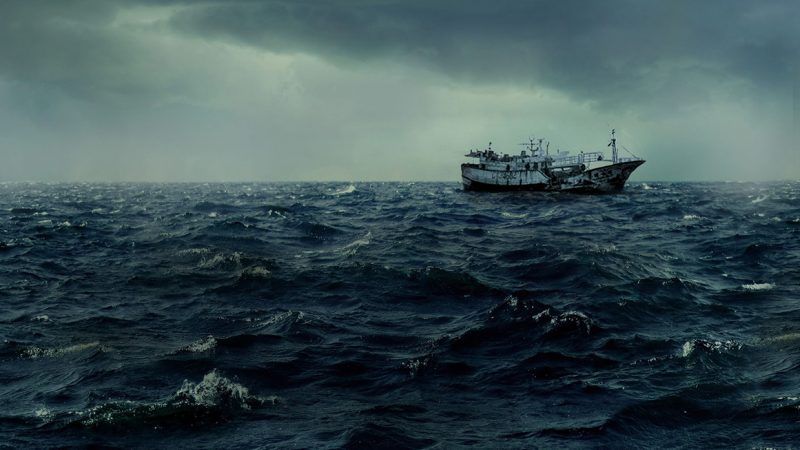The Outlaw Ocean
Each chapter profiles those who live on the edge of maritime laws, in the gray areas that are so often unenforceable by land governments.

New York Times investigative journalist Ian Urbina's book The Outlaw Ocean is a fast-paced and meticulously reported travelogue of four years spent covering the world's last great frontier, the high seas.
Measured by sheer area, Urbina may have the biggest beat of any reporter on Earth. His central concern is how the ocean's vastness creates fluid borders, legal gray areas, and indifference from land-based governments that ostensibly enforce maritime laws.
Each chapter profiles people living on the edge of these laws, including vigilante ecowarriors, the micronation of Sealand, a maritime repo man who "recovers" giant ships from ports in the dead of night, and an abortion provider who shuttles women in restrictive countries to international waters.
Despite some of the picaresque characters you'd expect, it's far from a romantic view of the ocean. Urbina uncovers corruption, physical abuse, and literal slavery in the global fishing and shipping chains. He's a dogged investigator, and it's fascinating to watch him peel back the story of how, say, a fishing vessel flagged to a West African country, skippered by a Costa Rican captain, owned by shell companies connected to Spanish organized crime, and crewed by trafficked Malaysians can offload to a U.S. port an illegal catch of Antarctic toothfish, which eventually appears on menus as "Chilean sea bass."
Urbina avoids casting most of his subjects as heroes or villains. Things at sea are never that clear. As a Vietnamese fisherman detained by the Indonesian coast guard for poaching in disputed waters half-jokingly notes, the fish were on his side of the imaginary line when he started chasing them. The Outlaw Ocean is a must-read for anyone interested in lawless zones, ocean issues, or just compelling investigative journalism.
Editor's Note: As of February 29, 2024, commenting privileges on reason.com posts are limited to Reason Plus subscribers. Past commenters are grandfathered in for a temporary period. Subscribe here to preserve your ability to comment. Your Reason Plus subscription also gives you an ad-free version of reason.com, along with full access to the digital edition and archives of Reason magazine. We request that comments be civil and on-topic. We do not moderate or assume any responsibility for comments, which are owned by the readers who post them. Comments do not represent the views of reason.com or Reason Foundation. We reserve the right to delete any comment and ban commenters for any reason at any time. Comments may only be edited within 5 minutes of posting. Report abuses.
Please to post comments


A NYT reporter that doesn’t cast anyone as a villain? No wonder they cast him out to sea.
Sounds interesting i may get that book
Meh. All the millions of tons of cargo that are transported via sea as agreed to is not as sexy, I guess.
Or the fact that thanks to modern cruise liner companies, an average person can live like a millionaire or King of past Centuries for less than $1000.
Complete with dysentery.
I imagine living out in the open waters where there's no laws and you get to do whatever you want is awesome. At least until a band of pirates outguns you and captures your little enclave, you'll be begging the state to intervene.
No thanks. I'd rather stay here on land, and if the government does something stupid or exceeds it's authority I'll push back. Instead of running away from the state, I am staying put where I can make a difference voting out the politicians that go too far.